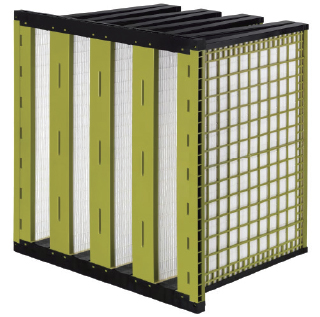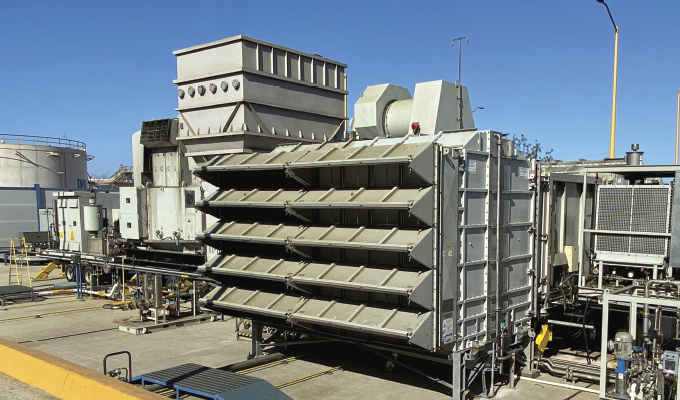While the rise of renewable energy is reducing the carbon intensity of the electricity system, managing variable resources like wind and solar also presents challenges. Fluctuations in renewable power can potentially create instability in the electricity grid leading to voltage or frequency changes that can cause significant problems.
One approach to managing this instability is through deployment of gas turbines. With the ability to rapidly ramp up or down depending on grid requirements, gas turbines offer an attractive solution and have long been relied upon to provide ancillary services in support of grid stability—a function known as grid firming. However, whereas previously large gas turbines have been the chosen approach, the steady increase in distributed renewable capacity has prompted a shift to smaller aero-derivative machines that can offer an agile solution for grid firming at a local level.
FILTRATION INTEGRAL TO SUCCESS
Aero-derivative gas turbines offer better rapid response rates and flexibility to support intermittent renewable resources, as well as high efficiency during part load and low minimum load capabilities when operating as a fast response spinning reserve. In addition, they are quick to install and relatively easy to transport. Similar to large, advanced gas turbines, aero-derivative machines also depend on efficient and effective air filtration to sustain optimum performance.
Particulates such as dust and grit, sticky materials like insects or hydrocarbons, and corrosive materials like salt can significantly impact gas turbine performance. Such materials can erode, corrode or stick to the blades, dramatically lowering efficiency and increasing service and maintenance costs. Effective filtration can avoid these issues but demands a sophisticated and comprehensive design approach to deliver clean air without introducing excessive restriction on the air flow across the filtration system, as this too has a negative impact on turbine performance.

THE RIGHT TOOL FOR THE JOB
With its extensive R&D capabilities, in-depth understanding, and extensive experience of developing air filtration systems for gas turbines, Parker Hannifin’s ability to package small yet flexible, modular innovative solutions for aero-derivative machines is unmatched. Tailored to aero-derivative applications, Parker Hannifin’s modular filter houses are lightweight, compact, and easy to transport, install and commission, while also optimizing air flow and aerodynamic performance.
Deploying tools like advanced CFD modelling and computer simulations, careful material selection and superb quality control supports a minimum size and weight while also ensuring the filtration system is configurable to match the specific local site conditions.
FOR A RENEWABLE FUTURE
Developed in partnership with leading turbine OEMs, Parker Hannifin’s versatile nineth generation compact modular multistage filtration system covers the full suite of aero-derivative turbine filter equipment. From the filter house, filters, silencer, winterization kit, chiller or evaporative cooling and noise abatement options, Parker Hannifin can ensure a reliable, rapid start and high cycling capability for the aero-derivative gas turbines that are helping to support an energy system that is increasingly dominated by renewables.
COMPANY CLOSE-UP
Gas Turbine Filtration Division
With more than 50 years of experience delivering innovative solutions for gas turbine inlet filtration and monitoring fleet-wide performance data, Parker Hannifin’s Gas Turbine Filtration Division provides a full range of inlet systems and filters engineered to help customers meet their operating goals.
Parker Hannifin is a Fortune 250 global leader in motion and control technologies. For more than a century the company has been enabling engineering breakthroughs that lead to a better tomorrow. For more information, visit www.parker.com.


